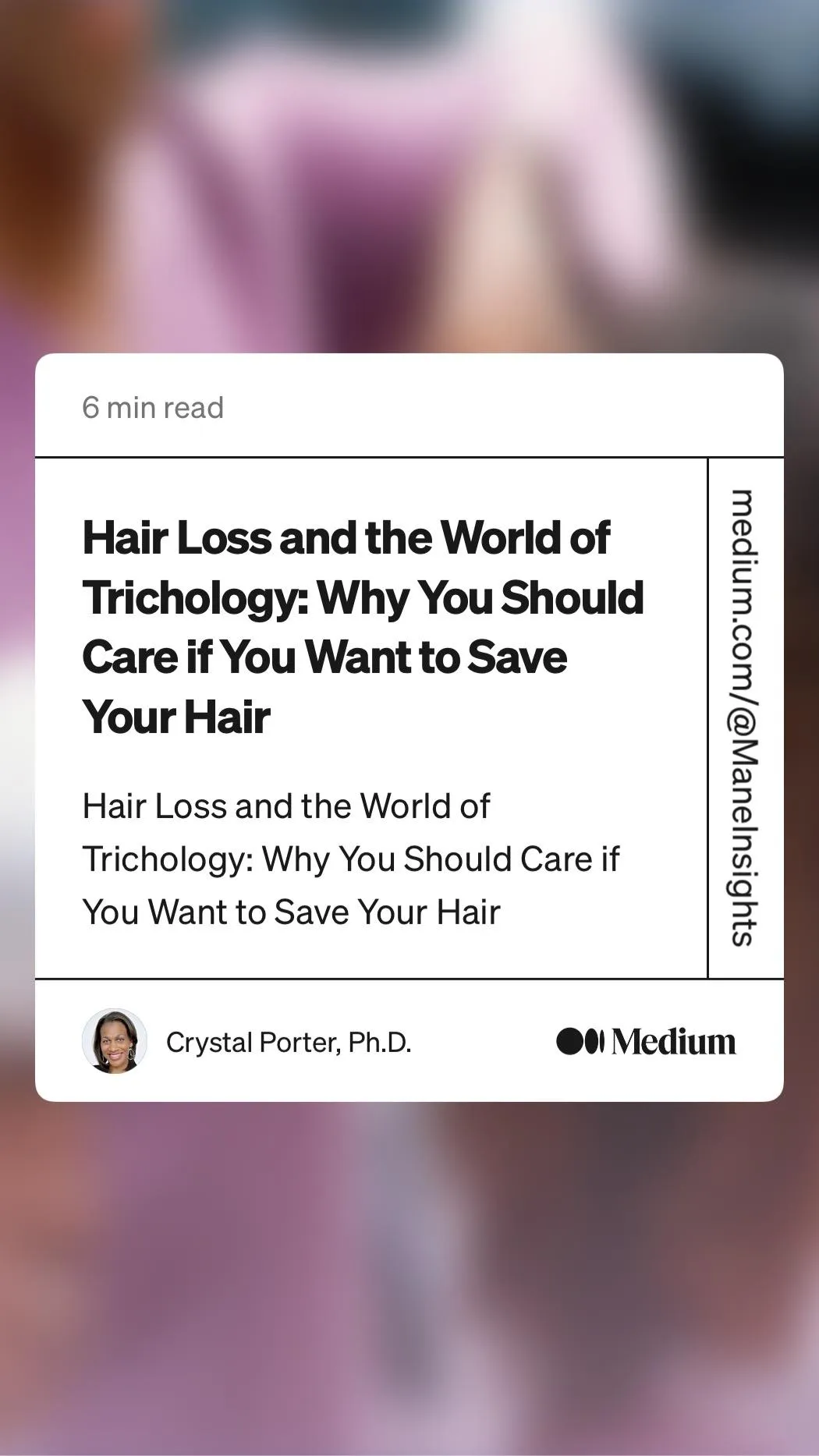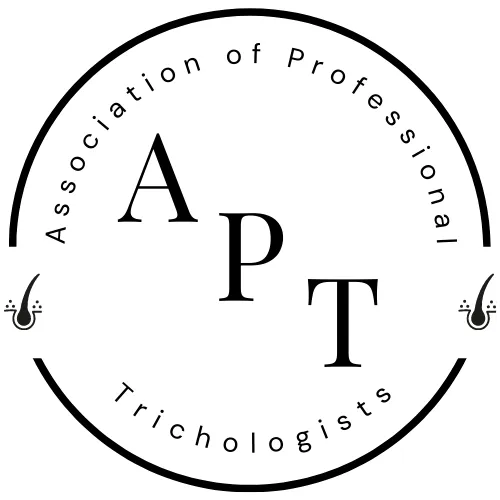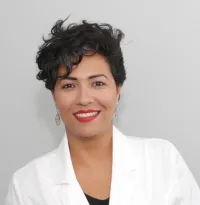
Explore the APT blog for expert advice, insightful articles, details on upcoming events, and the latest research and news in the scalp and hair loss industry

Hair Loss and the World of Trichology: Why You Should Care if You Want to Save Your Hair
Hair Loss and the World of Trichology:
Why You Should Care if You Want to Save Your Hair
Hair care can be addictive, which is why it is a multi-billion dollar industry. The evolution of products, ingredients, styling techniques, styling implements, etc., keeps us always searching for the next best thing and some novel hair trends provide opportunities for us to continue to learn and grow. Because of my background as a hair scientist, many women keep me on my toes by asking questions that will help you to overcome some of your hair problems. Most of the time I can answer these questions or put them on my ‘to do’ list of things to explore in research; but, there are times where I have to peruse through relevant articles, websites and reach out to other experts in the field to answer your questions. The latter is what I had to do when people started asking my opinion about the world of trichology.
If you are not familiar with trichology, it is the study of diseases of the hair and scalp. There has been a rise in the number of classes offered to hair professionals in this field of study and just this past November, I was fortunate to be a part of a terrific team of experts during the Hair Loss Epidemic Conference in Chicagoland that was led by Connie Judge-Johnson, president and founder of the National Trichology Training Institute (NTTI). Many licensed cosmetologists are flocking to receive trichology certification from organizations and associations that promise to certify professionals by providing education and training. This type of instruction is needed due to the many problems that exist in the world of hair and I applaud those who want to supplement their cosmetology training to better serve their clients. However, not all trichologists are created equal, and I have witnessed how devastated some women are when hair issues have progressed to the point of no return because they sought advice from so-called certified trichologists who weren’t really qualified to provide proper care. Both hair care professionals and clients need to understand what qualifies someone to be a true practitioner of trichology. Here is what you need to know:
1. Some trichology associations or programs that offer certifications to hair professionals are not regulated by official certification agencies or post-secondary education in the United States. They are either based in other countries where they come to the United States to hold forums or conferences to make a lot of money, or they make up a curriculum without having it vetted through the proper channels. While this does not mean that the information being taught is not useful, they themselves are not held to high standards by being overseen by a qualifying association agency or educational board. In addition, illegitimacy in credentials usually mean there are short cuts taken where students are not properly trained. Unfortunately, so-called certifications that are granted from such entities give a false sense of security to both the stylist who has obtained his/her ‘credentials’ and the client who believes that her stylist is certified. This leads to my next point…
2. Some trichologists who claim to be certified really are not. Now, this is a little tricky because, as I stated above, most of the trichology associations falsely state that they are legitimately certifying hair professionals. Therefore, it is up to each one of us to do our due diligence by asking the right questions to determine if we are being teamed-up with the right professional. See “What Can You Do?” below.
3. There are some trichologists who call themselves “Doctor Such-and-Such” and do not have the credentials to do so. First, let me provide my understanding of what usually qualifies people to be addressed as “doctor” here in the United States: 1) a medical professional who has received an advanced degree in the field of medicine, 2) a person who has received a Ph.D., Ed.D., etc., where their dissertation (which was based on research) was approved by an accredited university, and 3) someone who has significantly contributed in a particular field of work and a Ph.D. - granting institution voted to issue an honorary doctorate degree. Folks are eager to solve their hair and scalp problems and would not believe that someone could get away with calling themselves a doctor when they don’t really have the credentials to do so. It is not right to confuse or mislead people just because hair professionals want to have some letters behind their name. Personally speaking, if someone does not have a medical degree, has not added to the world database of knowledge by publishing their unique research that has been accepted by their peers or has not made a large positive impact on society that was recognized by a voting board of higher education, they have no business calling themselves a doctor (very few exceptions apply).
4. Some trichologists try to assume the role of a dermatologist by attempting to medically diagnose and treat hair loss on their own. While it is beneficial for those of us who get our hair done to go to highly skilled hair practitioners who educate themselves in the field of trichology, it is unacceptable for them to think that they can solve hair loss issues on their own. Unfortunately, there is a growing epidemic in hair loss for women — especially those of African heritage, and there needs to be a synergistic approach where qualified dermatologists and properly-educated trichologists work together in solving problems of the hair and scalp. A good trichologist should have at least one knowledgeable dermatologist that he/she works with to solve problems that relate to the scalp. It is the perfect combination. Because of the specialized knowledge they have, trichologists can help to implement some of the professional advice that dermatologists provide after a proper diagnosis. The creative styles given by someone who has an expertise in cosmetology help patients to look and feel their best as they battle hair and scalp issues.
5. Be leery when a trichologist says that he/she is board certified. When we see a professional is “board certified”, most of us automatically think that the person bearing that title holds an advanced degree in medicine. Having this affiliation usually means that he or she went through a rigorous certification process through the American Board of Medical Specialties (ABMS); thus, a physician stays abreast of medical advancements and goes beyond just having a license to practice. However, it has been reported that other organizations issue their own certificates to people who have undergone training in other areas. The acceptance of these ‘other organizations’ is controversial but most board-certified physicians would be wary of affiliating themselves with other professionals who say they are board-certified when the certification is not associated with the ABMS. As I stated before, a well-trained and thorough hair practitioner will partner with a board-certified dermatologist so please do your homework and make sure that the “board certified” professional that is working with you to solve your hair and scalp woes is reputable.
This is not a message to initiate a full revolt against professionals who are truly helping their clientele. If you have found a hair professional who is skilled and educated enough to keep you with healthy hair and/or has relieved you of scalp issues, consider yourself lucky. Hold on to him for dear life. However, if you are one of many who have been duped in one way or another, please increase your chances of finding someone by arming yourself with knowledge and strategies to grow and maintain a healthy head of hair.
What can you do?
General public:
1. Ask trichologists the name of the governing entity who provided their certification. To date, organizations that are transparent in their certification status are listed below. However, be aware that some of these organizations are not approved by their respective state boards of education and the status of certification can change with time so you may need to periodically verify that the organization is still compliant. Do your homework!!
a. United States Trichology Institute
b. World Trichology Society
2. If you are experiencing scalp issues, be sure your trichologist has a working relationship with a licensed dermatologist.
3. If you are seeing someone who calls himself/herself a doctor of trichology, be sure to know his/her credentials and investigate the use of the term "board certified".
4. Keep in mind that even though you are going to a professional, it does not mean that he/she is experienced, knowledgeable or competent. Just as in any profession, use your own discernment to determine if you are receiving the best care.
Professionals:
1. Find out whether the trichology program that you are considering is governed by a post-secondary board of education. If so, research it to make sure that it aligns with the credentials you are seeking. As a start, see the list above and call every one of them. There have been numerous situations where professionals have paid thousands of dollars and still did not receive the credentials they thought they were getting.
2. If you learn that you have been bamboozled and your so-called certification is not valid, contact your post-secondary state board of education and file an official complaint. This is the only way to stop fraudulent organizations from leaving well-intending professionals high and dry.
3. If you do not meet the credentials to call yourself a doctor, PLEASE, just drop the title. You will get more respect for your actions of helping those in need rather than putting a Ph.D. behind your name. Remember, actions always speak louder than words - or in this case, they speak louder than letters.
This article has been re-published here with the permission of the author, Crystal Porter Ph.D. from its original publication in Medium on 2/15/16.
Dr. Porter is owner of Mane Insights and the Executive Director of the Association of Professional Trichologists.
Here are just 3 reasons why you should become a member of the Association of Professional Trichologists and start displaying the 2024 Proud Member Badge.
1. Trust and Credibility
Displaying the APT badge on your website and social media platforms signals to colleagues and clients alike your adherence to the highest standard of professionalism and ethical practices in Trichology.
2. Unity and Pride
By showcasing this badge, we stand united in our mission to advance the science and practice of scalp care. It's a symbol of the pride we take in our profession, and the difference that we make in the lives of those we serve.
3. Recognition and Visibility
In a crowded digital world, the badge enhances your visibility setting you apart as a trusted authority in Trichology. It attracts those seeking quality care, driving engagement and opportunity for your practice or your business.
To become a member of APT and have access to the 2024 Proud Member badge, please visit:


Facebook
Instagram
LinkedIn
Youtube